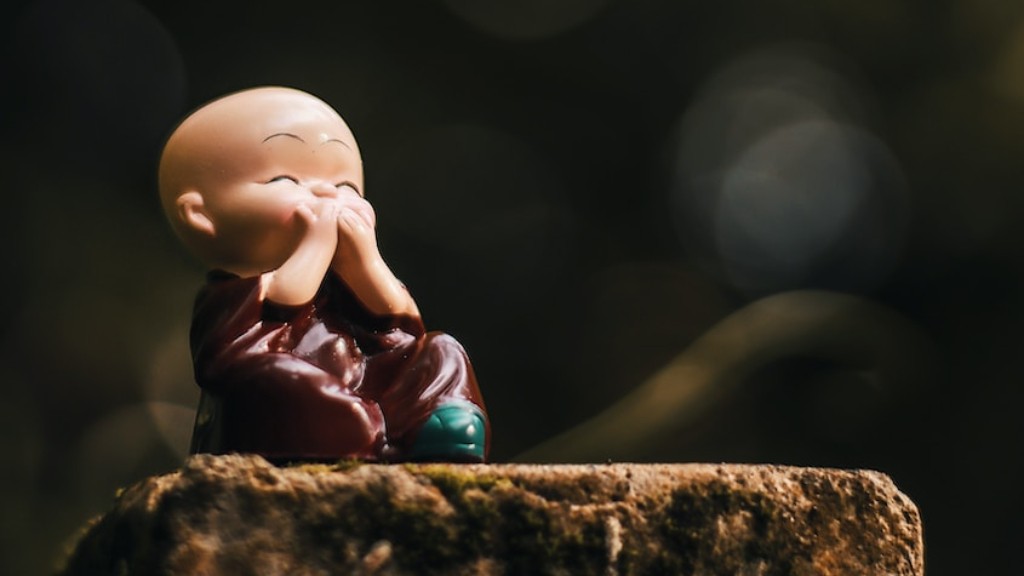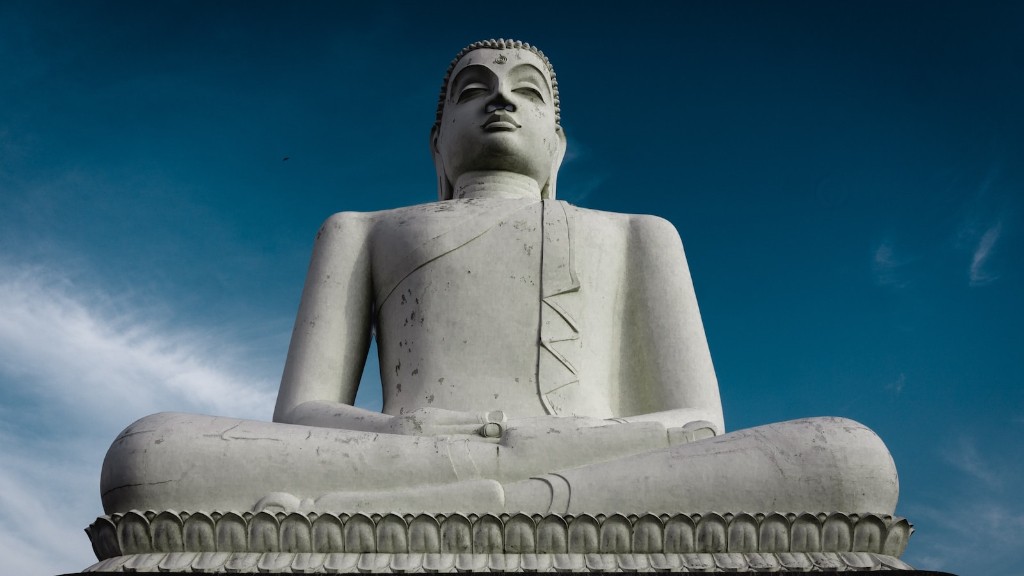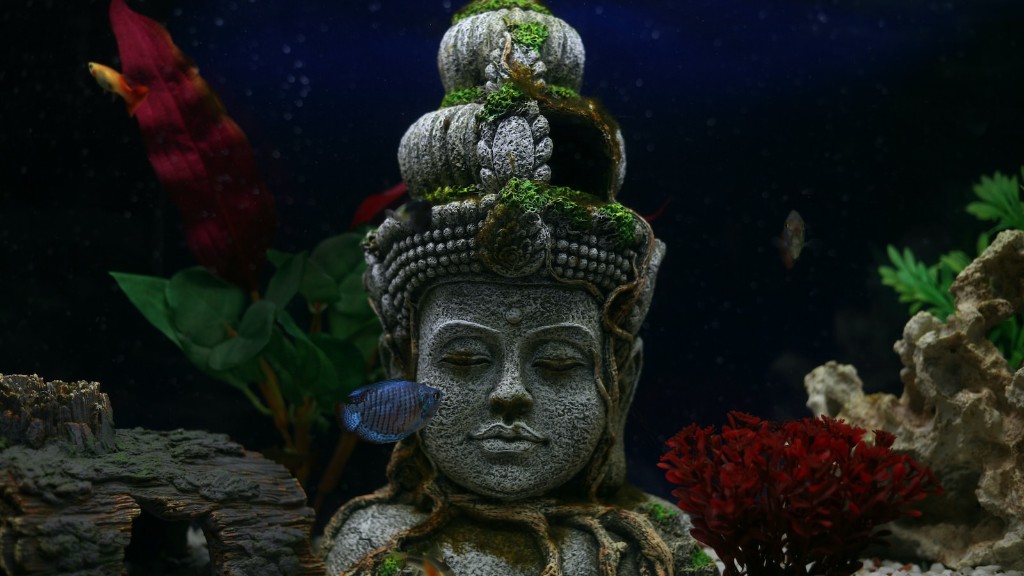Theravada Buddhism, also known as Southern Buddhism, is one of the two main divisions of Buddhism (the other being Mahayana Buddhism). It is predominantly practiced in countries like Sri Lanka, Cambodia, Laos, Burma, and Thailand.
Theravada means “way of the elders” or “traditional Buddhism.” It is so named because it is the branch of Buddhism that adheres most closely to the original teachings of the Buddha.
The basic teaching of Theravada Buddhism is that the goal of the spiritual life is to attain Nirvana, a state of perfect peace and freedom from suffering. To achieve this, one must practice the Noble Eightfold Path, which includes right understanding, right thought, right speech, right action, right livelihood, right effort, right mindfulness, and right concentration.
The Theravada school of Buddhism is the oldest and most conservative branch of Buddhism. Its name comes from the Pali words “thera” (elder) and “vada” (teaching), which refers to the fact that this school upholds the teachings of the Buddha and his early disciples (the elders). Theravada Buddhism is also sometimes known as “Hinayana” Buddhism, which means “Lesser Vehicle.” This is because Theravada Buddhism stresses individual salvation and attainment of Nirvana, rather than working for the salvation of all beings.
What is Theravada Buddhism beliefs?
Theravada Buddhism is one of the oldest and most traditional forms of Buddhism. It emphasizes self-liberation through one’s own efforts, and meditation and concentration are vital elements of the path to enlightenment. The ideal road to enlightenment is to dedicate oneself to full-time monastic life.
There are a few things that make Theravada Buddhism unique, but the most notable is its extreme emphasis on monastic life. In fact, the majority of Theravada practitioners choose a monastic path away from the secular world. This is because Theravada Buddhism places a great deal of importance on renunciation and asceticism, both of which are central to the monastic lifestyle. Additionally, Theravada Buddhism teaches that the only way to achieve Nirvana is through your own efforts, which is another reason why many practitioners choose to live a monastic life.
What is the difference between Mahayana and Theravada Buddhism
There are a few key differences between Theravada and Mahayana Buddhists. One of the main differences is that Theravada Buddhists strive to become Arhats and gain freedom from the cycle of samsara, whereas Mahayana Buddhists may choose to stay in the cycle of samsara out of compassion for others. Another key difference is that Theravada Buddhists focus on their own individual liberation, whereas Mahayana Buddhists focus on the liberation of all beings.
Theravada Buddhism is a branch of Buddhism that emphasizes monasticism and meditation as the path to enlightenment. This form of Buddhism is common in Sri Lanka, Cambodia, Thailand, Laos, and Burma (Myanmar). Vajrayana Buddhism is the major form of Buddhism in the region of Tibet and in Nepal, Bhutan, and Mongolia. This form of Buddhism emphasizes the use of mantras and mudras (ritual gestures) in order to achieve enlightenment.
Who do Theravada Buddhists worship?
Theravada Buddhism follows the teachings of Gautama Buddha. The followers of Theravada Buddhism believe that Gautama Buddha was the last and greatest of all Buddhas. The followers of Theravada Buddhism strive to live in accordance with the Four Noble Truths and the Eightfold Path.
Nirvana, or the liberation from cycles of rebirth, is the highest aim of the Theravada tradition. In the Mahayana tradition, the highest goal is Buddhahood, in which there is no abiding in nirvana. Buddha helps liberate beings from saṃsāra by teaching the Buddhist path.
What are the three main characteristics of Theravada Buddhism?
The Theravada school of Buddhism is one of the older schools of Buddhism, and it has its roots in Sri Lanka and SE Asia. Its major characteristics include an emphasis on the Pali Canon of scriptures and commentaries, and the veneration of the historical Shakyamuni Buddha. The Theravada school also regards the arahat, or “worthy ones” who have attained nirvana, as the ideal spiritual model.
The first precept is to avoid taking life, which includes both gross and subtle forms of killing. The second precept is to avoid taking what is not given, which includes not only theft but also grasping, miserliness, and greed. The third precept is to avoid sexual misconduct, which includes both infidelity and behavior that exploited, coerced, or is otherwise disrespectful. The fourth precept is to maintain mindfulness of the body and to refrain from intoxicants, which dull the mind and prevent clear awareness. The fifth precept is to refrain from speaking falsehood, which includes not only lying but also gossip, slander, and divisive speech.
Developing ethical conduct is essential to the Theravada path to awakening, as it purifies the mind and prevents harmful actions that can lead to suffering. The practice of the precepts also develops the qualities of generosity, patience, respect, and self-restraint, which are all important for the practice of meditation and the attainment of wisdom.
What makes Theravada Buddhism different from other religion beliefs
Theravada Buddhism confines itself to the Pali Canon as its sacred scripture, whereas Mahayana Buddhism regards additional scriptures as equally authoritative.
The theravada tradition emphasizes meditation and the cultivation of wisdom and compassion. In contrast, the mahayana tradition promotes the development of active compassion through the bodhisattva ideal and emphasizes the importance of helping all sentient beings achieve enlightenment.
Theravada literally means the Way of the Elders, and is named so because of its strict adherence to the original teachings and rules of monastic discipline expounded by the Buddha. The Theravada Buddhist tradition within Thailand is composed of many different strands and types of monasteries. Theravada Buddhists in Thailand tend to be more conservative than other Buddhists in Thailand, and they maintain a higher degree of observance to the monastic rules.
Is Zen Buddhism Theravada or Mahayana?
Mahayana Buddhism is a form of Buddhism that emphasizes compassion and altruism. Mahayana Buddhists often see themselves as Bodhisattvas, beings who are dedicated to helping others achieve enlightenment. Zen is a Japanese form of Mahayana Buddhism that emphasizes sudden enlightenment and a close connection with nature.
The Theravada beliefs are divided into various categories, most of which apply to other forms of Buddhism. These include: Belief in the Supernatural (Deity): Members of the religion do not consider the existence of God, and only consider the Awakened One’ as the utmost, fully enlightened person, but not as their God.
Does Theravada Buddhism teach Buddha a god
It is often said that the Buddha was a man, not a God. This is because the Buddha did not believe in a creator God. Instead, he taught that we are all responsible for our own actions and can create our own destiny. This message was very appealing to the people of his time, who were looking for a way to escape the cycle of rebirth. The Theravada tradition, which is prevalent in parts of India, Sri Lanka, Myanmar, Cambodia, and Thailand, is a direct result of the Buddha’s teaching. This tradition emphasizes individual responsibility and personal achievement. followers of the Theravada tradition believe that Buddha was a great teacher, but not a savior. They believe that each person has the power to achieve Nirvana, or enlightenment.
The Dhammapada is one of the key canonical texts of Theravada Buddhism and it contains a strong denunciation of violence. The Buddha himself was a firm advocate of non-violence and taught his followers to eschew violence in all forms. The Cakkavattisihanada Sutta is another key text in which the Buddha emphasises the importance of moral and ethical conduct and strongly condemns violence. These texts provide a strong foundation for Theravada Buddhism’s stance on violence and its ethical teachings.
Who is the god in Theravada?
A bodhisattva is a being who is on the path to becoming a Buddha. In Theravada Buddhism, the term is used mainly for the Buddha before his awakening. The future Buddha, Maitreya, is believed to currently reside in Tavatimsa Heaven, and this figure is one of the few bodhisattvas who have a prominent place in Theravada.
Buddhism does not have any rules or traditions about marriage, which means that each person is free to decide whether or not they want to be married, how many children they want to have, and who they want to marry. This freedom can be liberating, but it can also be daunting, as there is no guidance about what is considered to be a good or bad marriage.
Does Theravada Buddhism believe in reincarnation
There is much debate among Buddhists about what happens after death. Some Tibetan Buddhists believe that there is an in-between stage known as the bardo which can take up to 49 days. During this time, the soul is said to wander in a liminal state before being reborn into another body. Other Buddhists, such as those in the Theravada tradition, believe that rebirth can be immediate. Those who attain enlightenment (nirvana/nibbana) are said to be liberated from the cycle of rebirth and do not get reborn upon their death.
Buddhism is one of the oldest religions in the world, and is practiced by millions of people across Asia. It is the official religion of Sri Lanka, Myanmar and Cambodia, and the dominant religion in Laos and Thailand. In India, Bangladesh, China, Nepal, North Korea and Vietnam, Buddhism is practiced by minorities.
Warp Up
Theravada Buddhism is the oldest surviving Buddhist school. It arose in the 1st century BCE, and still exists today. Its name comes from the Pali term theravada, which means “the Teaching of the Elders.”
Theravada Buddhism is a branch of Buddhism that emphasizes individual salvation through one’s own efforts. Theravada Buddhists believe that Buddha was a human being who achieved nirvana, or freedom from suffering, through his own efforts and that each person must follow the same path to achieve nirvana.





